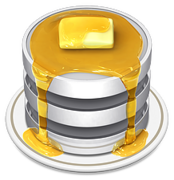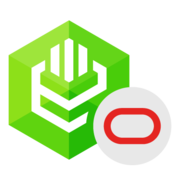
Best Database Management Systems 2026
What are Database Management Systems? Database management systems, or database management software include tools for the management, collection, organization, storage, utilization, and optimization of data within your database. These products support a variety of databases, such as SQL Server, MySQL, and PostgreSQL. Database management software includes: Database Performance Monitoring Tools – offer monitoring, diagnostics, and analytics with the goal of optimizing database ...
We’ve collected videos, features, and capabilities below. Take me there.
All Products
Videos for Database Management
Learn More about Database Management Software
What are Database Management Systems?
Database management systems, or database management software include tools for the management, collection, organization, storage, utilization, and optimization of data within your database. These products support a variety of databases, such as SQL Server, MySQL, and PostgreSQL.
Database management software includes:
- Database Performance Monitoring Tools – offer monitoring, diagnostics, and analytics with the goal of optimizing database performance
- Database Productivity Tools – support database application development
- Database Connectivity Tools – APIs (Application Programming Interfaces) provide the interfaces that allow applications to interact with different databases
- Database Integration Tools – support integration and administration for relational databases and non-structured databases
- Database Server Tools – administration tools for database servers
Organizations that have large scale, complex data requirements benefit from the extended features that database management software provides.
Database management systems are used by database administrators (DBAs), database designers, software developers, and managers.
Database Management System Features
Database management software generally has the following features:
- Support multiple database models: relational, object-oriented, hierarchical, distributed, non-relational, and cloud-based
- Support a variety of both proprietary and open-source database systems
- Data migration, conversion, integration, and replication
- Performance monitoring
- Diagnostics
- Optimization tools including those powered by machine learning
- Analytics and reporting
- Productivity, database application development support
- APIs
- Maintenance
- Backup and Recovery
- Security
- Mobile access
Database Management System Comparison
When purchasing database management software, consider the following:
Open Source vs. Paid Database Management Systems: Both proprietary and open-source database management systems provide data management tools. An open source tool may be more configurable, but will require additional time and technical know how to set up and maintain. When considering costs, consider the cost of the employees who will have to maintain an open source product on an ongoing process rather than just the purchase price of a paid product.
Cloud Based Database Management Systems
Cloud based database management systems involve the implementation of a cloud database management platform, alongside necessary tools, policies, and other resources for controlling data that is stored in the cloud. Alternatively, cloud based database management systems can also help with hybrid set ups where data is collected from multiple sources such as a combination of on-premise and cloud-based infrastructure components.
Pricing Information
The cost of database management systems depends on the features and scalability. Pricing models include one-time fees for perpetual licenses, monthly/annual subscriptions, and pricing per user, database server, data volume, or CPU usage. Free, open-source products and free versions with limited features are available.
Database Management FAQs
What does database management software do?
What are the benefits of using database management software?
What are the best database management software products?
These are some of the popular database management software products:
























